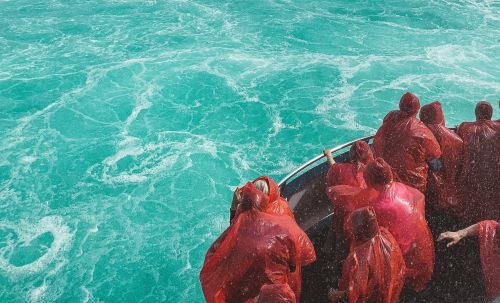 How are we once again at this point where there is another u-turn on a big infrastructure project? Surely there must be accountability on these big projects? Before these projects get approval, there are numerous feasibility reports, consultant reports, reviews within the relevant Ministries, scrutiny in Ministers offices, and sign off by the Government.
How are we once again at this point where there is another u-turn on a big infrastructure project? Surely there must be accountability on these big projects? Before these projects get approval, there are numerous feasibility reports, consultant reports, reviews within the relevant Ministries, scrutiny in Ministers offices, and sign off by the Government.
There can be no doubt that New Zealanders deserve a better and safer solution for the important connection of the ferries on our state highway network. Both ferry companies operating the Cook Straight have had a year of cancellations due to engineering and mechanical issues. Some of the Interislander ferry woes have been particularly worrying.
In January this year the complete failure of the ferry Kaitaki’s engines caused it to drift dangerously close to rocks near Wellington harbour. According to the Transport Accident Investigation Commission’s report it was caused in part by KiwiRail's failure to replace safety-critical parts, which were years past their use-by dates.
In February the ferry Aratere lost power near the Tory Channel entrance, on its way to Picton.
In March the ferry Kaitaki was taken out of service after new engineering problems, this time with its gearbox. The repair took more than a month to rectify.
In August passengers were forced to spend the night on the ferry Kaitaki anchored out in Wellington Harbour after it turned back from its sailing due to steering issues.
Sailings of the ferry were also cancelled on the ferry Kaitaki in August after a bow door was damaged by a large wave during a crossing.
At the core of New Zealand’s Health and Safety at Work Act is the requirement that all duty holders, so far as reasonably practicable, eliminate risks to health and safety. Risks that cannot be eliminated must be minimised. A business has a primary duty of care to ensure, as far as reasonably practicable, the safety and health of its workers and that others are not put at risk by the work carried out as part of the business. It must further ensure that there is, amongst other matters, safe plant (such as a ship) and that there are safe systems of work (such as replacing safety critical parts by their used-by dates).
No doubt the replacement ferries that have been on order were a big part of the Interislander’s risk minimisation plan for the future. Within businesses, serious failures in health and safety are treated as issues that could amount to serious misconduct warranting dismissal. At governance level, oversight of those responsible for health and safety would (or should) also sit heavily on their shoulders.
However, the Interislander’s plans for the future proofing of our inter-island link have been thrown into disarray with the Government announcement last week that it would not contribute new funding to KiwiRail to address rising costs involved in upgrading the ferries and terminal infrastructure. It reportedly has quadrupled in cost since 2018 to about $3 billion overall - much greater than the original $775 million business case.
Chief Executive of KiwiRail (owner of the Interislander), Peter Reidy, has defended his team's work and processes. Mr Reidy said the engineering project was "exceptionally complex". "We're talking about a seismic area of New Zealand; we're talking about having to lift the whole Wellington infrastructure a metre because of the flood modelling codes", "Once you start to look through all the design and the real costs of constructing, that's where the envelope obviously started to increase."
Even to a layman, there is nothing new in Mr Reidy’s explanation. Yes, we know that this is an active seismic area; yes, we know that sea levels are expected to rise. No doubt numerous feasibility reports and consultant reports dealt with these issues (or should have). How does that justify a quadrupling of the cost at this stage of the project?
Trust and confidence is an essential part of the employment relationship. It may amount to serious misconduct warranting the termination of the employment relationship; it is more than mere inadvertence, oversight or negligence. Surely there is at least a case to answer here within the senior management team and at Board level?
KiwiRail chairperson, David McLean, has said that without the further funding from the Government they couldn’t proceed with the project and that an alternative long-term solution could take years to develop. “We sought a strong outcome for New Zealand through this project for a more resilient State Highway 1 across Cook Strait for exporters, domestic freight forwarders, tourism and domestic commuters.”
The Government is the majority shareholder Air New Zealand. Does it expect lesser safety standards of its’ national marine carrier than it does of its national air carrier? How would the public feel if they heard that Air New Zealand was failing to replace safety-critical parts which were years past their use-by dates.
Unfortunately for New Zealanders, and according to our Finance Minister, the best we can now expect for the Cook Straight connection is a reliable Toyota Corolla. Until then, the problematic Interislander service will continue to operate. Read more....

